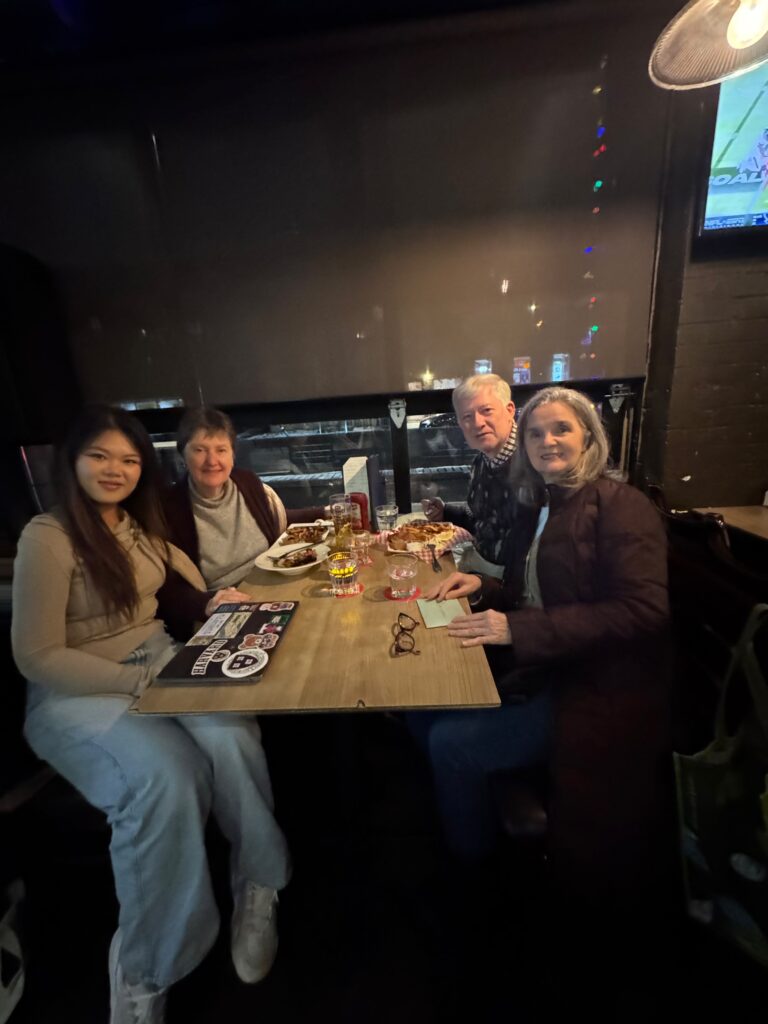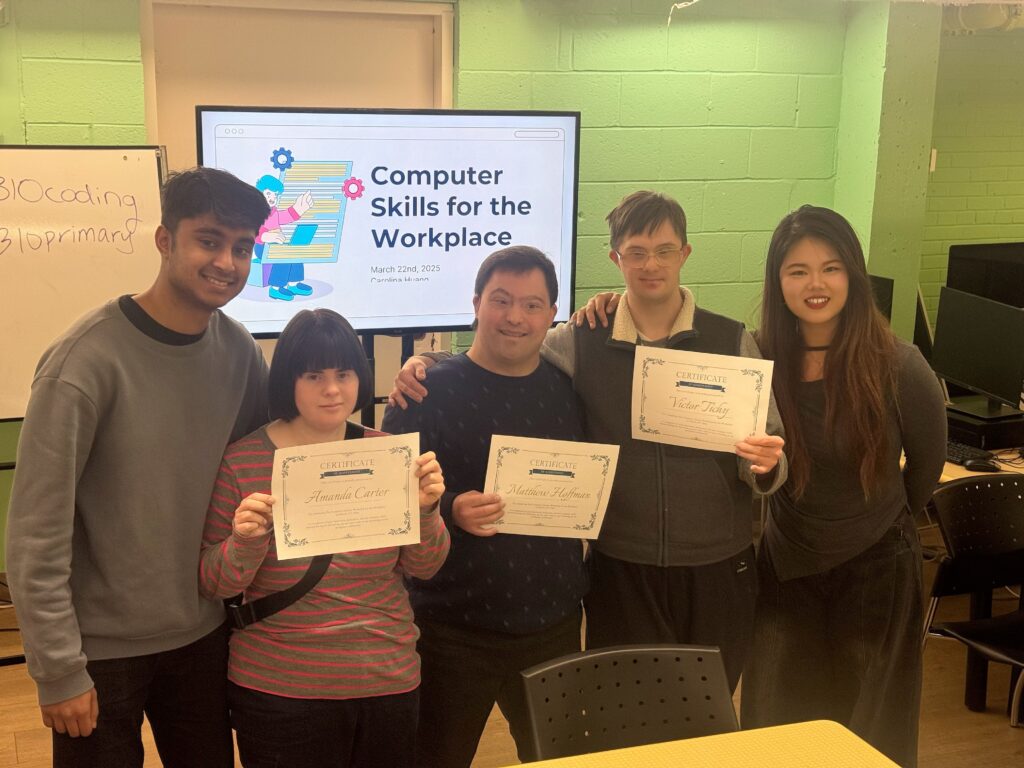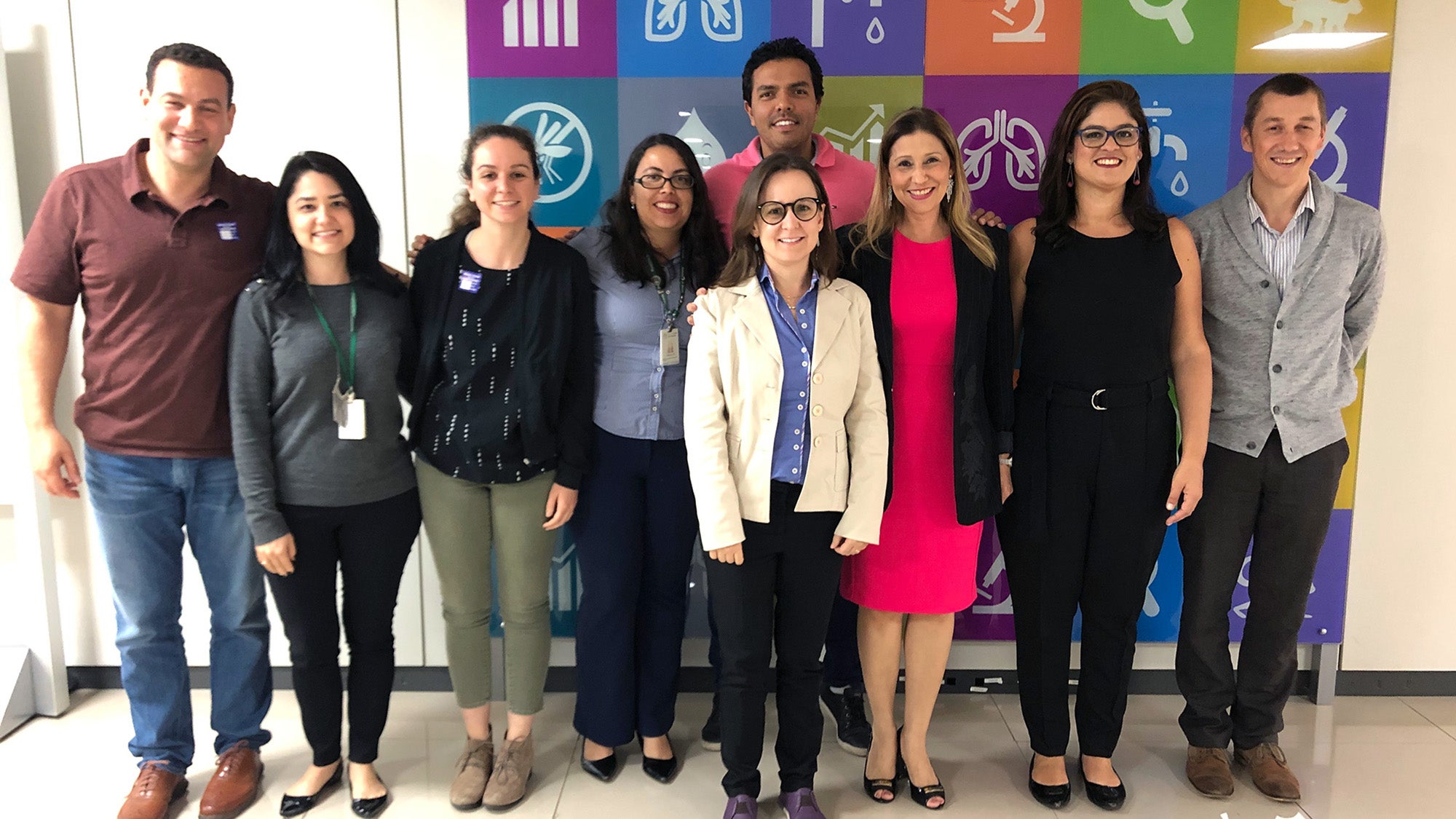Learning Side by Side: Reflections on a Computer Literacy Workshop for Adults with Down Syndrome

Carolina Huang is a Rose Service Learning Fellow and a Master of Science candidate in Epidemiology
Stepping into the project to pilot a computer literacy workshop with my project host organization, the Down Syndrome Association of Toronto (DSAT), I felt like I was returning to a familiar and welcoming community. Over the course of my senior year during college, I had been volunteering with DSAT, building connections with participants and their families through programs like Sportclusive. Those early experiences planted the seeds for this project, as I learned firsthand about the barriers and opportunities adults with Down syndrome face when navigating employment and digital spaces.
When I began this next phase of partnership through the Rose Service Learning Fellowship, I knew that posture, proximity, and positionality would be the heartbeat of my work. But it wasn’t until I truly sat beside the participants — listening, learning, and adjusting in real time — that I understood what it meant to learn side by side.
I came into this project carrying those principles close to my heart. I understood that my role wasn’t to “fix” anything. Posture meant approaching the work with humility and openness — acknowledging that the adults I was working with were the true experts on their own lives.
During focus groups, the participants shared their work experience and interests with excitement. Amanda spoke about her experience about working in a library, helping catalog books and assist visitors. Matthew, deeply interested in politics, shared his desire to find ways to volunteer in campaigns and office settings. Tamarah proudly talked about her work at Lil E Café, where she had practiced real-world skills like taking orders and making drinks. Victor, whose days were filled with music, libraries, and private piano lessons, expressed how meaningful it would be to find employment that recognized his talents.

Listening to their experiences reshaped how I thought about the workshop plans. This wasn’t about teaching abstract “skills” — it was about giving participants real tools to pursue their ambitions.
Proximity taught me that real learning happens when we are truly present with one another. It wasn’t enough to stand at the front of the room and talk. I needed to sit beside Matthew as he practiced taking detailed notes during a research exercise, celebrate Victor’s excitement when he successfully scheduled his first calendar invite, and cheer with Amanda as she navigated Wikipedia to research her favorite movies.
It also meant being close enough to notice when small barriers arose: when a sensitive cursor made it difficult to control movements on the screen, when a new program felt overwhelming, or when unexpected glitches made tasks harder. These challenges weren’t signs of inability — they were reminders of how even thoughtfully designed environments can still present hurdles, and how adaptability and encouragement are key to keeping learning accessible and supportive.
As the pilot workshop unfolded, our sessions developed a rhythm. We started the session with a simple icebreaker, asking participants to share one thing they wanted to accomplish using a computer. We played “Office Bingo,” where participants checked off tasks as they mastered them.
When the participants practiced creating events in a calendar app — scheduling an activity or event — the room buzzed with excitement. Every small milestone, whether successfully pasting new information into a document or saving a file correctly, felt worthy of celebration and became moments of real pride.

Throughout, I had to stay mindful of positionality — recognizing how my own background, education, and comfort with technology shaped how I approached teaching. It required slowing down, checking my assumptions, and noticing that what might seem simple to me could feel monumental to someone experiencing it for the first time. Critical reflection helped me appreciate the effort and persistence that participants brought to the session.
For many, learning computer skills was not just about building a resume — it was about gaining confidence in using tools that make daily tasks more independent. Skills like setting reminders in a calendar app, or creating a basic document offered new ways to communicate and stay organized. These foundational steps opened doors to greater participation in workplaces, programs, and community activities.
One parent told me at the end of the workshop, “It’s not just about the computers. It’s about someone believing they can.”
That moment stayed with me. Because that belief is what posture, proximity, and positionality are really about: honoring the dignity, potential, and growth of every individual we work with.
This experience challenged me to rethink not only how I design programs, but also how I listen, and how I show up in spaces where underserved communities are seeking true partnership and sustainability.
Our session ended not with not just certificates, but with smiles, laughter, and a deepened sense of possibility. We had built something together — a foundation for continued growth and opportunity.
I went into this project hoping to teach a few new computer skills. I left with something far more valuable: a deeper understanding of what community engagement should look like — side by side, learning from each other, every step of the way.


